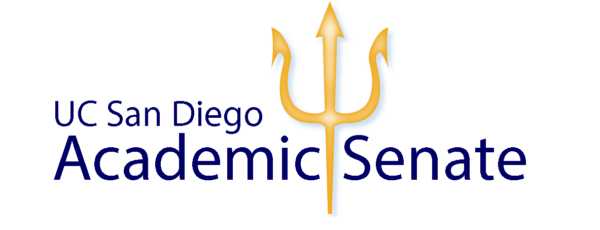
Image courtesy of Academic Senate Office
In a letter sent to the Academic Senate division chairs and executive directors on April 22, Ahmet Palazoglu, vice chair of the University of California Academic Council, announced the establishment of the Academic Senate Task Force on UC Adaptation to Disruptions. This systemwide task force aims to anticipate and respond to executive orders and state and federal decisions that impact higher education.
The letter read: “This task force was established by the Academic Council in recognition of the need to proactively consider how the University can uphold its teaching, research, and public service missions in the face of potentially severe and unpredictable external disruptions.”
The task force is responsible for “analyzing impacts and developing response strategies” in four main areas:
Restructuring of academic programs.
Resizing of programs and the workforce.
Recalibrating growth objectives.
Realigning funding sources with mission activities.
UCAD is a 12-person team including representatives from the Academic Senates of each UC campus, selected by the chair of UC’s systemwide Academic Senate.
Olivia Graeve, chair of the UC San Diego Academic Senate, is a member of this new systemwide task force.
“The goal of this group is to recognize potential future disruptions and come up with solutions before the disruption occurs,” she said to The UCSD Guardian. “We have to realize that we are not in the business of predicting the future. We don’t know what the future brings; nobody does. But, we can at least imagine possibilities and plan for those possibilities so that they have less of a negative impact on the campus community, including undergraduate students, graduate students, and faculty.”
According to Graeve, the task force meets regularly to address the impacts of state and federal budget cuts to the UC. These include concerns about student support programs, modifications to graduate admissions processes, and the quality of education.
On May 14, California Gov. Gavin Newsom finalized budget cuts to the UC in his most recent revision to the state budget. The revised budget established a $129.7 million reduction — about 3% — on the General Fund for the UC, which replaced an initial reduction of $396.6 million announced in January.
“The email we received on the 3% budget cut is actually good news,” Graeve said. “[UCAD was] expecting a bigger budget cut, based on the financial scenarios that the state of California was envisioning. Earlier than this announcement, there were discussions of budget cuts that were even up to 8%, maybe even higher.”
Though the UC President remains the final decision-maker on budget decisions, Graeve expects that the task force will contribute to UC budget allocations in the future. She shared her hopes for collaboration with newly selected UC President James Milliken.
“We expect that [Milliken] is going to listen to the Academic Senate,” Graeve said. “We hope and expect that he will realize the value and importance of the faculty of the UC system and the value of making decisions for the academics of the institution in the best possible way in collaboration with the Senate.”
Graeve emphasized that change, however, takes time, but students can expect to see the task force’s work come to fruition in Fall Quarter 2025.
“Coming up with solutions and strategies takes time and [effective] deliberation,” Graeve said. “In full force, we really just started meeting recently. Anything that will impact the student body from now until three weeks from now is a little too soon. We need more time to deliberate; we need more time to be conscientious about what we are saying.”
The task force will provide an interim report on its deliberations to the Academic Council on June 18.